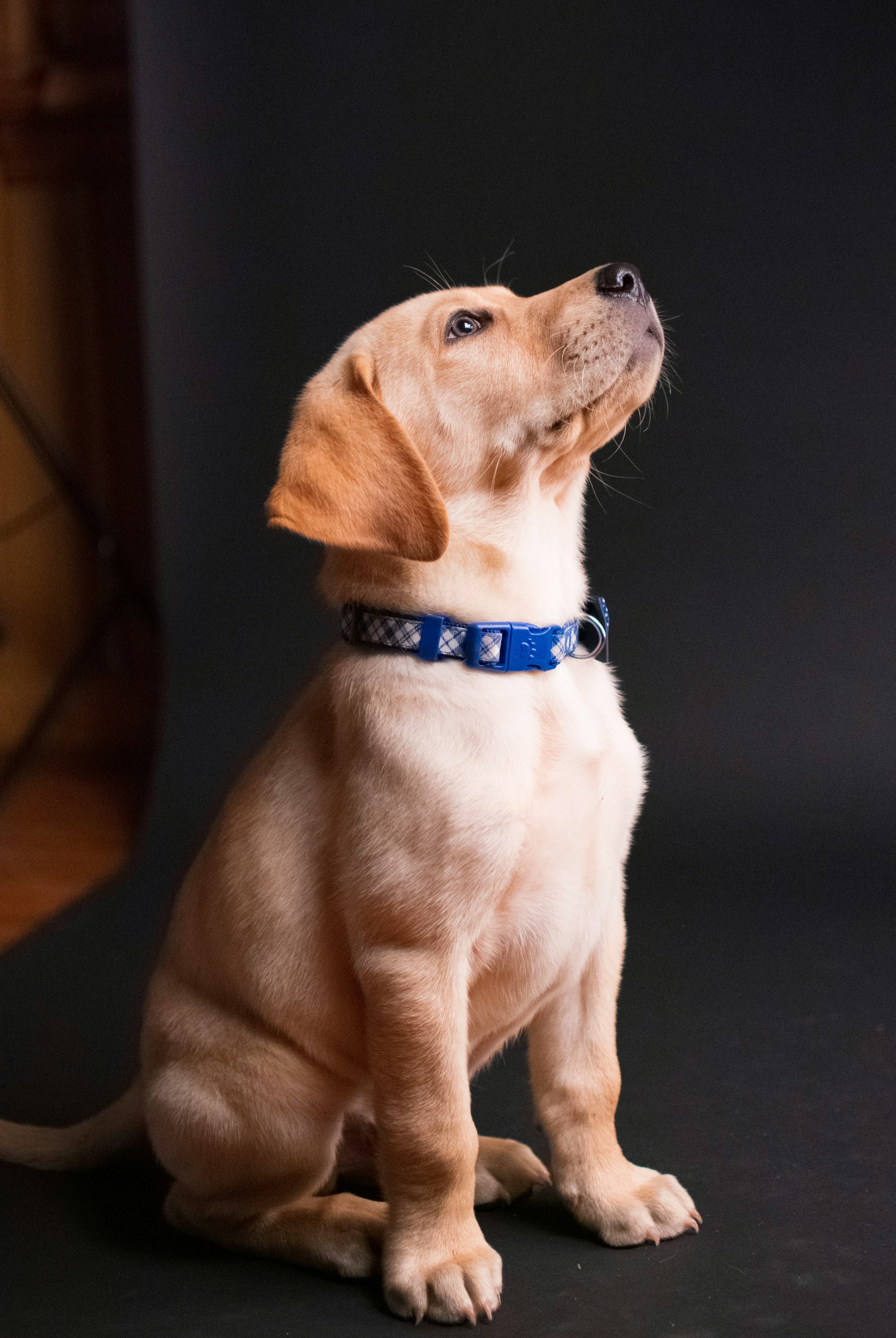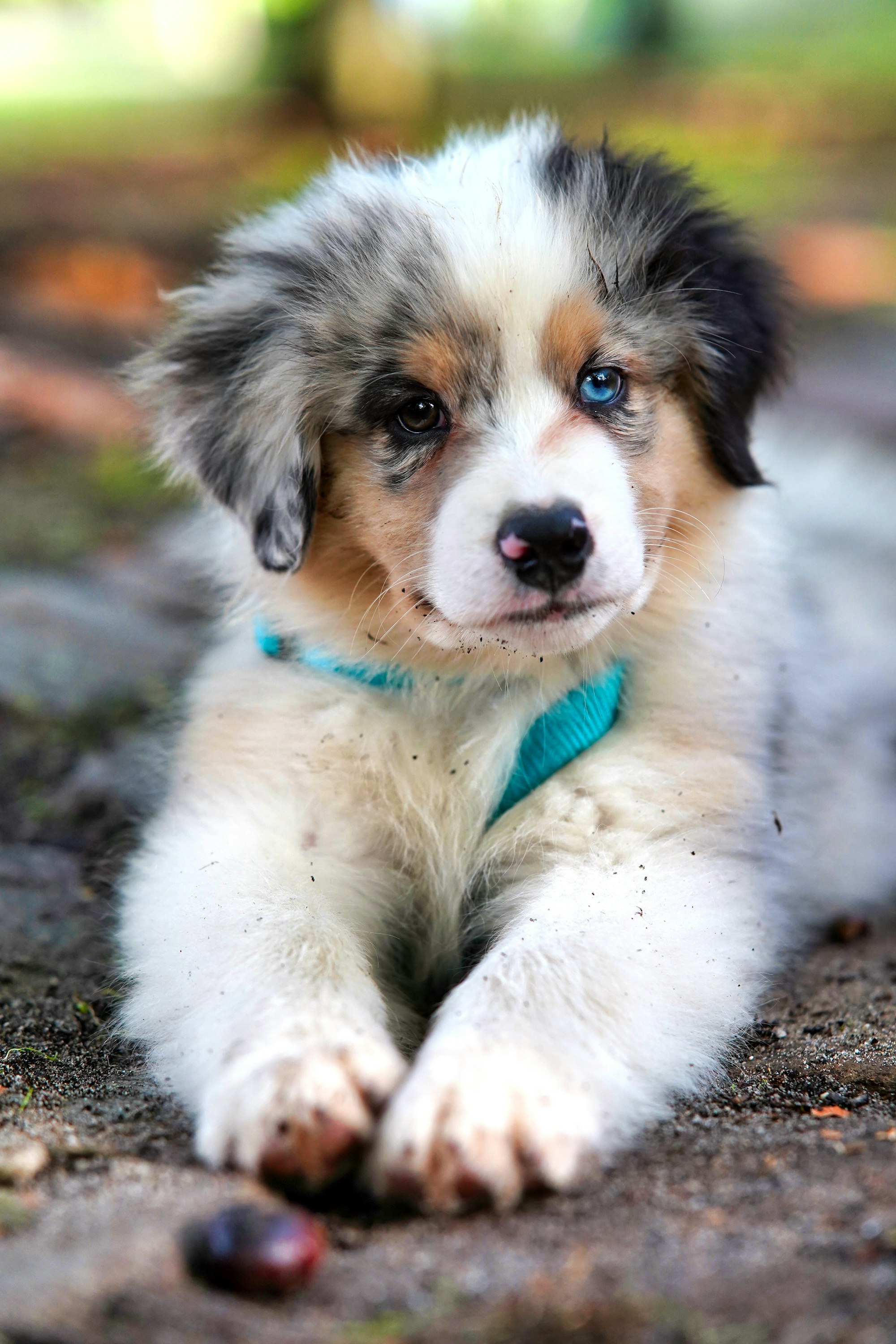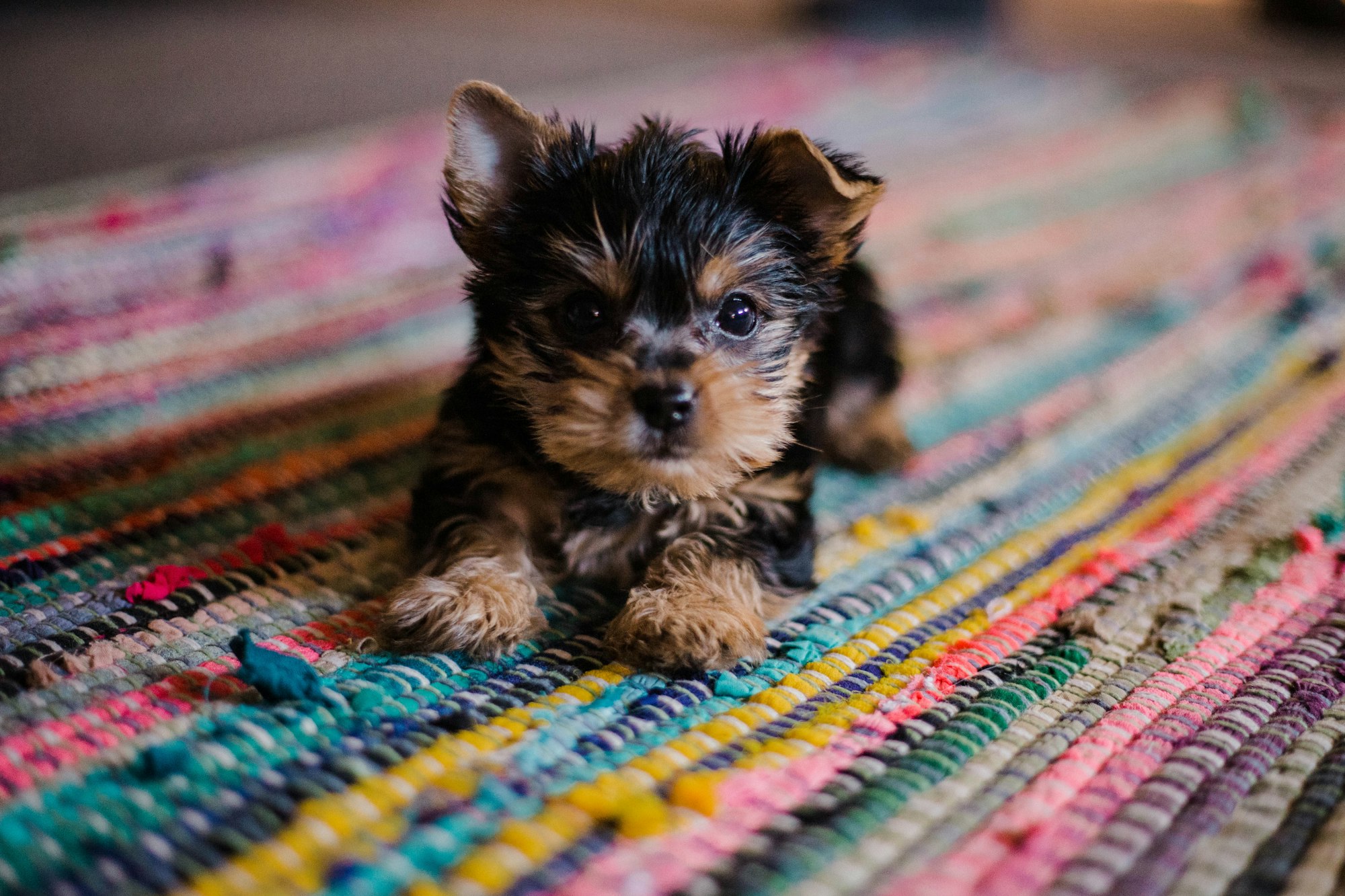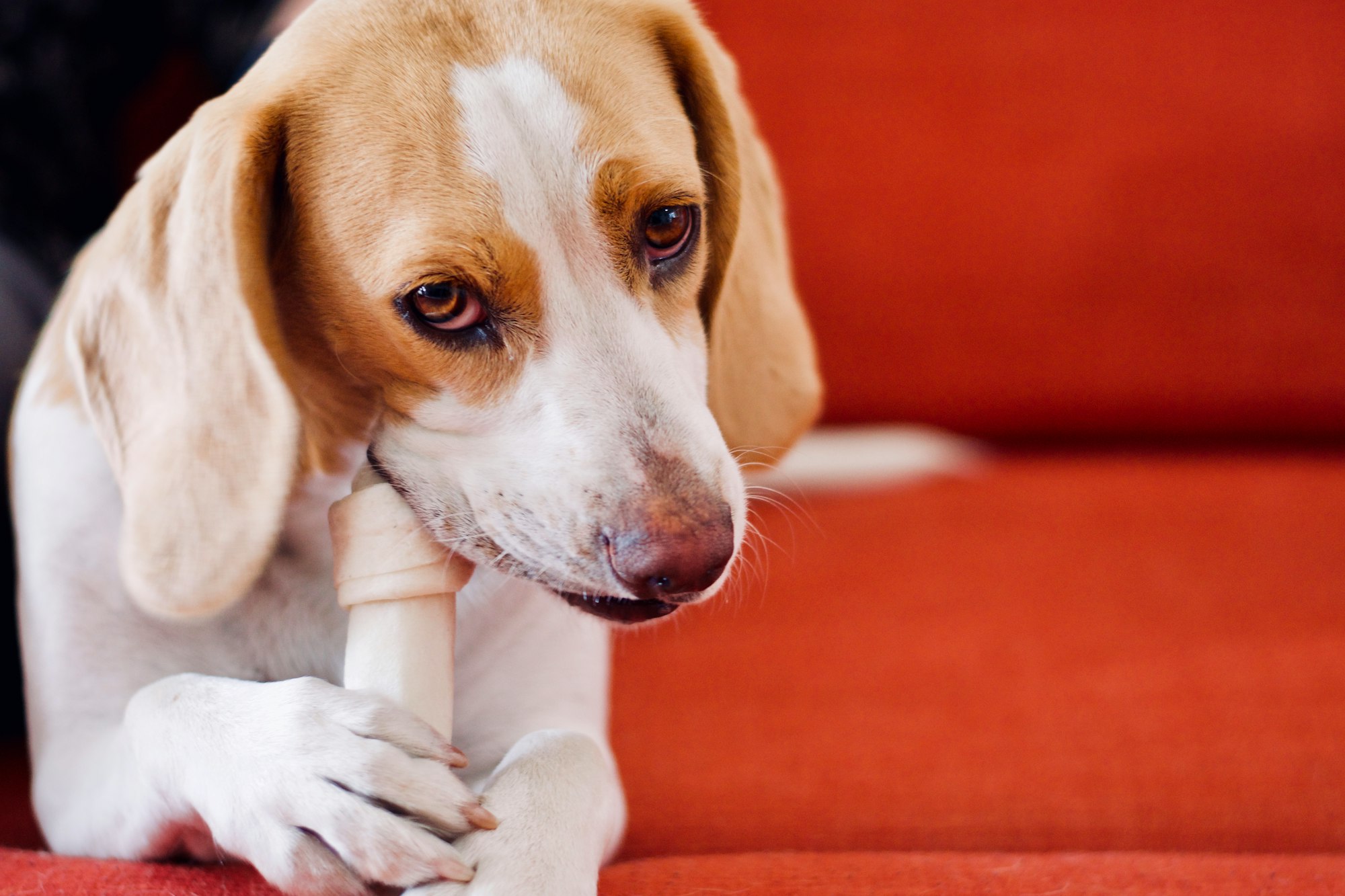Are you worried about the smell of your dog's poop? Don't worry, it's natural to be concerned about any changes in your furry friend's bathroom habits. The saddest thing a puppy owner wants to experience is a sick puppy.
However, if you've noticed a particularly strong and foul smell coming from your dog's bowel movements, it could be a sign of a serious illness called parvo.
In this article, we'll discuss what parvo is, how dogs can contract it, and what you can do to help prevent or treat it. We'll also delve into the characteristic smell of poop infected with parvo and how it compares to a normal bowel movement. So, let's get started and learn all about the smell of parvo from your dog's poop!

Safeguard Your Dog's Health with the Fi Dog Collar
In the fight against serious illnesses like parvovirus, early detection and swift action are crucial. The Fi Dog Collar is designed to empower you with real-time insights into your dog's health and safety. With its GPS tracking feature, you can monitor your pet's movements to ensure they're not in areas that could expose them to infectious diseases like parvo.
The activity monitoring feature helps you track changes in your dog's behavior and health, which can be early indicators of illness. The collar's geofencing capability will alert you if your dog wanders outside safe zones, helping you act quickly to prevent exposure to harmful environments. With the Fi Dog Collar, you gain the tools to keep your dog safe, healthy, and secure. Visit TryFi.com to learn more about how the Fi Dog Collar can help safeguard your pet.
Can You Smell Parvo From Your Dog's Poop?
Parvo smell has a unique very bad-smelling poop that is not easy to forget. The smell has been described as metallic, with hints of blood stench since the virus affects the intestinal walls, and a seemingly sweet scent. The smell gives off intense rotting since, as it moves through the digestive tract, it picks up and breaks down any food material there might be.
The odor is very strong and can still be felt even after intensive cleaning with detergents. The poop has a mixture of mucus since it moves along the alimentary canal, and it might be firm or slippery.
What Is Parvo?
Parvo is a viral infection that often affects puppies and in rare cases, adult dogs. It is a very malicious malady and risks high cases of death among puppies. It is an incurable disease; hence when a puppy contracts it, the viral infection must run its course, and the K9 develops immunity against it.
There are preventive measures that can be undertaken to shield puppies from infection such as vaccinating the dog against Parvo Virus. Vaccines are dead or weakened forms of the virus that are injected or orally administered into an animal whose presence in the body invokes antibodies against the virus hence preparing the organism’s immune system against future attacks.
How long after infection can puppies with Parvovirus spread the infection?
After the first five days of exposure, the pup can begin to spread the virus. However, this is a short time before the manifestation of the first symptoms of parvovirus infection and as such, the pup can be contagious without you noticing that it is ill.
After clinical examination and treatment, the infected dogs continue to spread the disease for ten more days. Hence it is critical to keep healthy and unvaccinated dogs away from infected pups. Talk to your vet about the best ways to prevent the spread of parvovirus.
How do dogs contract parvo?
Parvo is caused by a virus known as Canine parvovirus; this virus is easily spread. This virus is transmitted via the poop of a dog or vomit, and the virus can live on surfaces for a whole year without dying.
Pups contract the virus when coming in contact with infected poop or surface, and dog-to-dog infection. The virus is highly resistant to extreme hot and cold temperatures, humidity, and dry conditions. It can be found on the surfaces of collars, kennels, food, water, dog leashes, hands, and the clothes of people, and hence is easily transmitted from one location to another.
What signs should we watch out for in parvo disease?
Some dogs do not show symptoms of Parvo disease immediately but about five days later. The first symptom is usually a fever infection, which leads to a change in the normal behavior of pups.
Some of the symptoms that indicate a pup has Parvo poop smell disease include:
- Lack of appetite
- Blood stains on stools
- Loss of weight
- General body feebleness
- Dehydration
- Inactivity of the pup leads to depression
- Fever or low body temperatures
- Vomiting.
If your dog begins to show these symptoms, contact the veterinary doctor immediately as it may be the onset of parvo disease.

When should you seek veterinary assistance?
When symptoms of parvo disease begin to manifest, one should seek veterinary assistance. Parvo is a very fatal diarrhea virus.
The parvovirus attacks the quick-dividing cells, such as the white blood cells that are the body’s defense system. As a result, the puppy’s immune system is compromised and susceptible to attacks by other diseases and bacteria. For such a reason, it is critical that one seek medical assistance at first sight of the Parvovirus attack.
It is important to take your dog to the veterinary when:
- Your dog’s diarrhea continues for more than 48 hours, but the pup is happy.
- Your dog shows diarrhea symptoms such as decreased appetite and depression.
- Your dog has a fever or body temperature is below normal temperatures.
- Your dog’s poop has many blood spots in their poop.
Treating the Parvo smell
The veterinary doctor, through observing symptoms, can be sure to diagnose your pup. He or she may also do blood tests or perform an Enzyme-linked Immunosorbent Assay (ELISA) which is considered the gold standard for immunoassays and can be useful in determining the presence of antigens.
There is no cure for Parvovirus infection, the virus must take its course, and the pup develops immunity afterwards. However, the doctor can treat the symptoms, such as diarrhea and dehydration, and ensure the dog gets proper nutrition.

The parvovirus attacks rapidly dividing cells, such as white blood cells, that offer immunity to the body, leaving the puppy weak and prone to attack by bacteria. This will necessitate the doctor giving the pup antibiotics to fight the bacterial infections.
Recovery time from parvovirus depends on the severity of the attacks. Some pups take three to four days, while others take up to a whole week.
How to prevent parvovirus from attacking pups?
Parvo is a preventable disease. Puppies and grown-up dogs should be vaccinated against Parvovirus. Mother dogs that are used for breeding puppies should receive the entire vaccination against Parvo as the unborn to newborn puppies acquire their immunity from their mothers.
You should prevent your puppies from mingling with unvaccinated puppies to prevent them from contracting parvovirus. Isolating infected puppies from healthy pups in case you have more than one dog in the house is another helpful technique.

The Parting Shot
The smell of your dog's poop can be a clear indication of a potentially serious illness in dogs called parvovirus, or parvo for short. This highly contagious virus affects the gastrointestinal system and can be life-threatening if left untreated. While the smell of poop infected with parvo is particularly foul and strong, it's important to remember that it's just one symptom of the disease.
If you suspect your dog may have parvo, it's crucial to seek medical attention as soon as possible. In the meantime, be sure to keep your dog up to date on their vaccinations and practice good hygiene to help prevent the spread of the virus. With the right treatment and care, your furry friend will be back to their normal, stinky self in no time!
Visit the Off Leash blog at TryFi.com for more helpful articles about pet-parenting tips.
Would you like to learn more about TryFi.com? The Fi Dog Collar is a GPS tracking collar that not only tracks your dog's location, activity level, and sleep pattern, but also alerts you if your dog escapes. If your dog escapes, this is the fastest way to find him. Give the Fi Dog Collar a try today!

